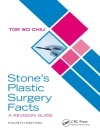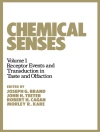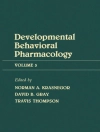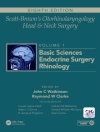Te rapidly changing concepts in radiation oncology with the development of more precise – strumentation for delivery of radiation therapy and a greater emphasis on hypofractionation technologies require a very intimate knowledge of tumor biology and the infuence of various biologic factors on dose distribution within the tumor in terms of homogeneity as well as prev- tion of any late efects on normal tissue surrounding the tumor itself. Not only are these major factors in clinical practice but also the known factors of inhomogeneity of cancer cells, the impact of microenvironment in terms of radiation efect, and host factors make it mandatory to design therapeutic strategies to improve the outcome and to diminish any potential short-term or lo- term risks from the radiation therapy. Te authors have developed an outstanding text that deals with these strategies and how they would impact on established and emerging new technologies and treatment. Te context of the presentations within a multidisciplinary combined modality therapy program is incredibly – portant. In this volume, various topics are reviewed including tumor genesis, cell proliferation, – giogenesis, the physiologic characteristics of malignant tissues, invasion and adhesion, the route and role pursued in the development of metastasis, and the role of the human immune system in cancer prevention and development.
Innehållsförteckning
Tumorigenesis.- Tumor Growth and Cell Proliferation.- Tumor Angiogenesis.- Pathophysiology of Solid Tumors.- Adhesion, Invasion, Integrins, and Beyond.- The Biology of Cancer Metastasis.- Role of the Immune System in Cancer Development and Therapeutic Implications.- Tumor Detection by Biological Markers.- Tumor Imaging with Special Emphasis on the Role of Positron Emission Tomography in Radiation Treatment Planning.- Quantitative Cell Kill of Radio- and Chemotherapy.- The Impact of Molecularly Targeted Therapy in Multi-Modality Therapy.- Target-Based Interventions to Treat Radiation-Induced Lung Injury.- Mechanisms of Treatment Resistance: Molecular and Clinical Examples for Radio- and Chemotherapy.- DNA Repair and Cell Cycle Regulation After Ionizing Irradiation.- Physiological Mechanisms of Treatment Resistance.- Influence of Time Factor and Repopulation on Treatment Resistance.- Molecular Tools, Expression Profiling.- Strategies of Gene Transfer and Silencing, and Technical Considerations.- Tumor Biology’s Impact on Clinical Cure Rates.- Dose-Escalated High-Precision Radiotherapy: a Method to Overcome Variations in Biology and Radiosensitivity Limiting the Success of Conventional Approaches?.- Treatment of the Primary Tumor in Metastatic Cancer: Influence on Outcome.
Om författaren
M. Molls, Professor, Chairman of the Department of Radiation Oncology, Klinikum rechts der Isar der TU Muenchen, Germany
C. Nieder, Professor at the University of Tromsø, Norway, Oncologist
M Anscher, Professor and Chairman, Department of Radiation Oncology, Virginia Commonwealth University School of Medicine, Richmond, Virginia, USA












